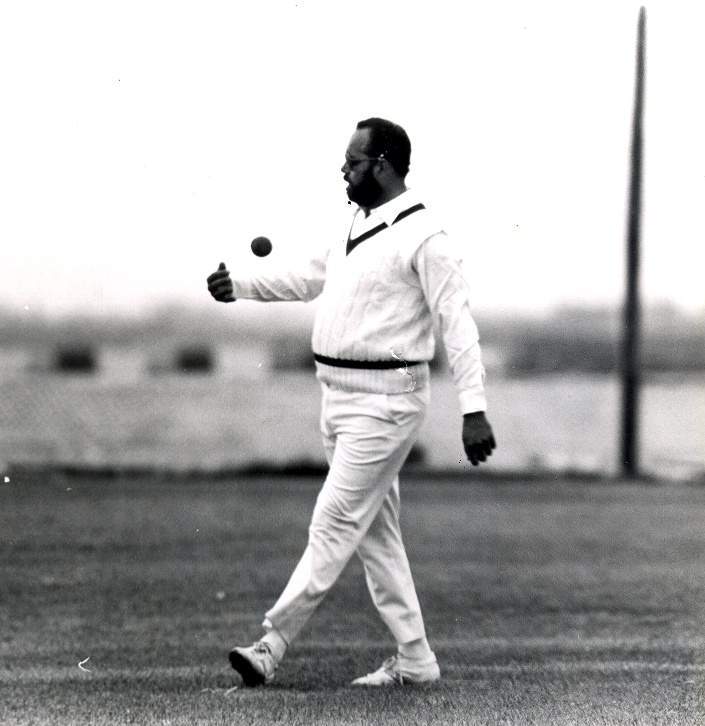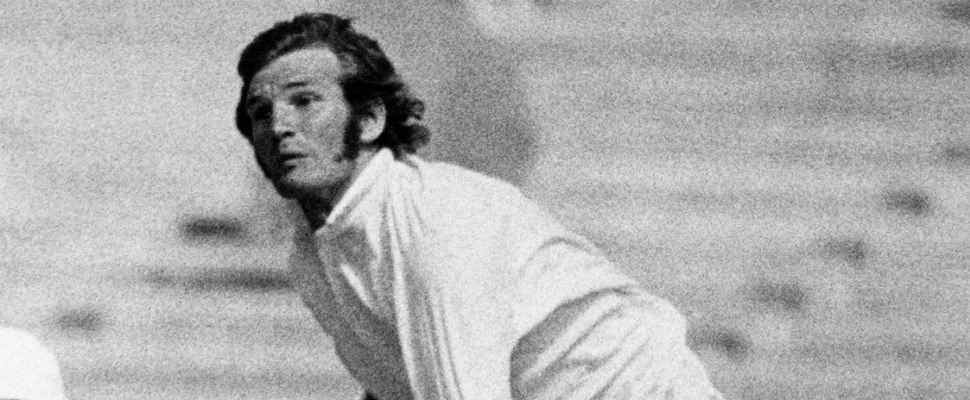
The first time Bermuda took on an international team was when they played the touring Australians, led by Syd Gregory, at Hamilton in 1912-13. However, it was not until 1971-72 that they contested a designated first-class fixture. The New Zealanders followed their five-Test series in the Caribbean with a visit to Hamilton’s National Stadium for a three-day match from April 28, 1972.
New Zealand gave a creditable account of themselves in their maiden Test tour of the West Indies, holding the hosts to a 0-0 draw in a series characterised by heavy run-scoring. Their premier batsman Glenn Turner, with a best of 259 at Georgetown, topped the charts with 672 runs at 96.00, while Bevan Congdon, captain for the last three Tests, was not too far behind, logging 531 at 88.50.
Bermuda became an Associate member of the ICC in 1966. Captaining them against the New Zealanders was 30-year-old Joseph Bailey, an off-spinning all-rounder. Turner continued his good form in the company of his opening partner Terry Jarvis, with whom he had shared a record partnership of 387 in the Georgetown Test. This time the pair put on 145 after Congdon elected to bat.
The rest of the batsmen could not capitalise on this start though, as left-arm medium paceman Clarence Parfitt, a Bermuda Cup Match star with St. George’s Cricket Club, produced a fine spell. He began by removing Turner for 70, and went on to collect four more wickets before finishing with 5/61. His fellow left-armer Winston Trott chipped in with 4/73, including the wicket of Jarvis (63).

Thanks to this highly commendable bowling effort, the New Zealanders lost their last six wickets for the addition of just 20 runs and were bowled out for 249. This was to be Bermuda’s peak in the match, as their batting came a cropper. They ended the first day wobbling at 30/3, with their top order finding the pace duo of Murray Webb and Bruce Taylor a handful.
The second day belonged to the left-arm spin of Hedley Howarth, whose younger brother Geoff would go on to captain New Zealand with success in the coming decade. Though Howarth averaged 50.21 in the Test series, his 14 wickets were the second most from either side, behind Taylor’s splendid return of 27 at 17.70. He began to spin a web around the Bermudans as soon as he came into bowl.
Howarth made short work of the middle and lower order, taking 5/32 in 14.5 overs, to ensure that Bermuda were bundled out for 99, one short of avoiding the follow on. Webb contributed his bit as well, finishing with 3/26. It was only due to 39-year-old Eldon Raynor, who top-scored with 34 from number eight, that the hosts could stage a semblance of a recovery from an abysmal position of 50/8.
Not surprisingly, Bermuda were made to bat again, and their top order again caved in to Webb and Taylor, as the score slumped to 16/3. Charles Daulphin waged a lone battle, scoring a pugnacious 50 even as wickets fell around him. Howarth repeated the dose he gave in the first innings, adding another 5/41 from 19.5 overs to his kitty to earn himself match figures of 10/73.

The Bermudan innings fared a little better the second time, terminating at 119 to give the visitors victory by an innings and 31 runs. This was the last first-class match for New Zealand’s 42-year-old leg-spinner Jack Alabaster, who rendered yeoman service to his team during a 16-year career. His two wickets in the second innings meant he ended with exactly 500 first-class wickets, at 25.37 each.
Parfitt, who was the best Bermudan performer in this landmark match, later moved to the United Kingdom. He played List A cricket for Scotland in his mid-forties from 1988 to 1990 and was a regular with the Arbroath United club there, besides becoming an influential coach to scores of Scottish youngsters. He is regarded as one of the greatest cricketers to emerge from Bermuda.
Following this maiden first-class game, Bermuda played quite a few touring Test sides, both in multi-day and limited-overs fixtures. They faced the Marylebone Cricket Club in 1973-74, the Australians in 1977-78, 1990-91 and 1994-95, the Pakistanis in 1992-93, the New Zealanders in 1995-96 and the Indians in 1996-97. However, none of these matches were accorded first-class/List A status.
Bermuda’s next first-class match was only in 2004, when they played the United States of America at Hamilton in the inaugural ICC Intercontinental Cup. Less than three years later, they enjoyed the best period in their cricket history when they played in the 2007 World Cup, lending the tournament with one of its most iconic moments in the form of Dwayne Leverock’s catch against India.
Catch up with all of Rustom’s EC Rewind articles here.






